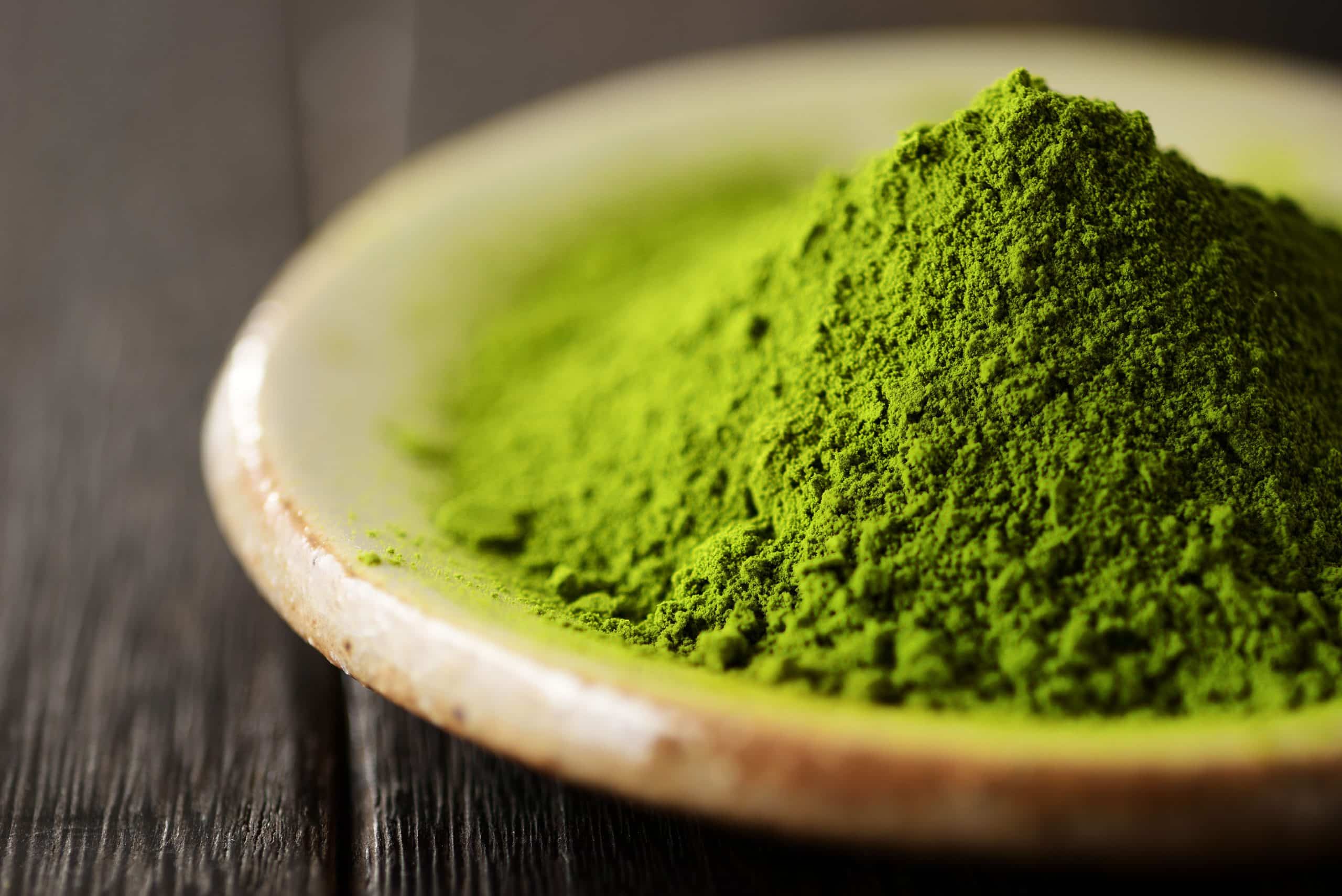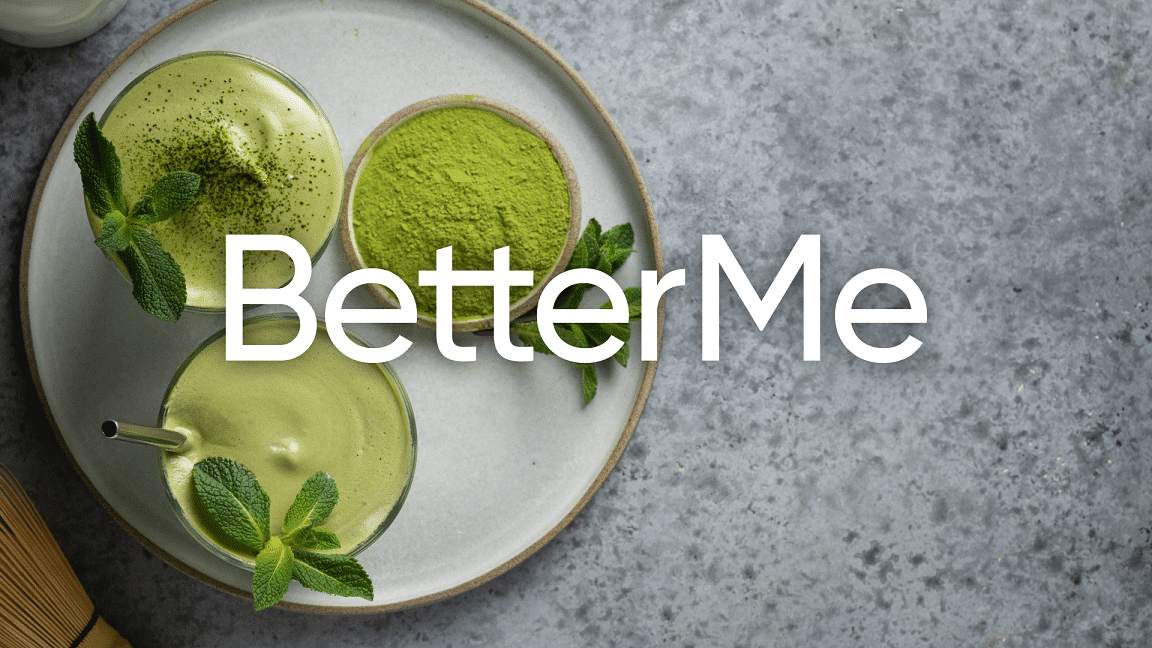You enter another coffee shop and notice Matcha latte, Matcha hot Chocolates, even Matcha desserts. You’re fascinated with the exotic titles, and desire to explore the taste.
“What the heck is this?” – Matcha newbies commonly question some baristas.
Briefly speaking, Matcha is the bright-colored green tea that initially was only served at Japanese ceremonies. Its use has boomed in the U.S. and elsewhere, due to its unusual taste and essential health benefits.
Interestingly, Matcha comes from the same plant as other caffeine-based teas, however it’s cultivated differently. Matcha makers shade the tea plant from excessive sunlight for much of the growing period so that it can produce more amino acids. When the leaves are harvested, they are turned into powder.
Let’s look at the crucial matcha powder benefits: does this beverage live up to the hype?
What is matcha powder good for?
We have collected the best matcha powder benefits after investigating a variety of studies and research. Note, the pool of research on Matcha powder is not so prolific. That said, the evidence we found is strong enough to title this tea as safe.
These are the top 6 scientifically-based advantages of Matha powder:
- Matcha offers a high level of antioxidants.
- Matcha could promote your liver health.
- Matcha may spur weight loss.
- Matcha may boost your brain function.
- Matcha might be good for your heart health.
Matcha offers a high level of antioxidants
As we age, we’re exposed to ultraviolet light, which ends up damaging our cellular membranes. The antioxidants that are abundant in Matcha help neutralize these harmful components and reduce oxidative stress.
One study highlights the positive effects of Matcha supplements on mice – damage caused by free radicals was reduced and there was improved antioxidant activity (17).
Matcha could promote your liver health
There are studies suggesting matcha could protect your liver from damage. Drinking green tea is associated with a decreased risk of liver disease, according to a 2015 review of 15 studies (15).
Still, other experts in 2020 noted that matcha may benefit people with nonalcoholic fatty liver disease by decreasing liver enzymes, but it may increase liver enzymes in people without NAFLD (9).
More research is required to identify the overall effects of matcha on people.
BetterMe is your fast-track ticket to a long-lasting weight loss! Tailor your fitness journey and maximize your results with just a couple of swipes!
Matcha may spur weight loss
Matcha Weight Loss evidence has also been evident from clinical trials.
The National Institute for Health states that green tea promotes energy expenditure and fat oxidation, reducing fat absorption and lipogenesis”. It could boast a “possible modest effect on body weight.”
One clinical trial in Obesity observed 76 overweight individuals for four months and determined that daily consumption of a green tea beverage promotes weight loss (4). Although the studies focused on green tea, matcha comes from the same plant and contains similar compounds.
Matcha may boost your brain function
Multiple research highlights the beneficial effects of matcha on brain function. One study of 23 people observed performance on a series of tasks. Some participants drank either matcha tea or ate a bar containing 4 grams of matcha, while the control group consumed a placebo tea or bar.
Those who consumed matcha were more attentive and could memorize things better, compared with those consuming the placebo (2). Another small study noted that consuming 2 grams of green tea powder daily for 2 months might enhance brain function in older people (11).
Does Matcha have caffeine? Surely it does. When we look at matcha vs green tea caffeine concentration, we see that matcha boasts a higher amount of caffeine per serving. Green tea contains around 11–25 milligrams per gram (mg/g), while matcha contains 19–44 mg /g (12).
Studies have found that caffeine can promote cognitive function, which adds reliability to matcha beverages (1).
Matcha might be good for your heart health
Some research suggests that drinking green tea, which offers the same nutrient profile as matcha, may help protect against heart disease.
Green tea consumption might lower the risk of cardiovascular disease, compared with coffee, and some studies have suggested it could help lower the risk of high blood pressure (6).
Is it OK to drink matcha everyday?
Yes, you can drink matcha every day. However, the beneficial compounds it contains, such as catechins, might harm your health when consumed in high quantities. Drink matcha in moderation, for example, 1–2 cups of tea per day or up to 2 teaspoons of matcha.
Note that people who need to limit their caffeine should probably avoid matcha consumption.
Matcha could be harmful to you if you are prone to arrhythmias or have heart disease. People sensitive to caffeine need to reduce their cups of matcha because it could cause anxiety, as well as disrupt sleep.
Read more: The Benefits of Matcha: How It Boosts Energy, Supports Skin And Enhances Health
Does matcha tea burn belly fat?
Matcha may help you burn your whole-body fat, including the belly area. Green tea, along with matcha, is well known for boosting weight loss. A 2020 review concluded that, together with a healthy diet and exercise, drinking up to 500 mg per day of green tea for 12 weeks might reduce body mass index (16).
For sure, more research is needed to prove the effectiveness of matcha on healthy body composition.
Matcha Smoothie Weight Loss could be an added treat for your calorie-shedding- sport routine.
Is matcha really better than coffee?
Stating that matcha is better than black coffee is not completely right, as both of them have their pros and cons. The main differences are found in their caffeine amount.
Coffee has a higher amount of caffeine: around 96 mg of caffeine per 8-ounce (240-mL) cup, while matcha has 19–44 mg per gram — equaling 38–88 mg per 2-ounce (60-mL) (10, 14).
Matcha is then more suitable for those who should reduce their caffeine intake.
Coffee provides an instant energy kick that reduces sleepiness and fatigue, while matcha would boost your energy at a slower pace than coffee.
Everything depends on preferences here: choose either black coffee or matcha or drink them together. Just be sure you’re consuming them in moderation and preferably only during the first part of the day (18).
Does matcha have disadvantages?
Yes, matcha tea side effects mainly apply to sleep issues and dehydration. Let’s meticulously check 4 possible disadvantages of consuming matcha tea:
- Sleep problems. Since matcha is a caffeine-based beverage, consuming it before your bedtime is a bad idea. Research states that caffeine intake up to 6 hours before bedtime can affect sleep quality (8). Your best thing to do at this point is to avoid matcha during this time and have it during the first part of the day.
- Anemia. High doses of compounds like EGCG and other compounds found in teas can spoil the process of iron absorption (3). If you have difficulty absorbing iron or are at risk of iron deficiency, you should talk to your doctor about how much matcha is right for you.
- Dehydration. Caffeine is a diuretic that increases your rate of urination (5). By consuming it, you lose more fluid than usual, which can lead to dehydration.
- Stomach discomfort. The content of matcha can have a laxative effect on some people, particularly those who don’t usually consume caffeinated beverages regularly (7). If you have a lot of matcha in a short period, you may end up with an upset stomach, due to caffeine which stimulates the central nervous system and leads to feelings of jitteriness.
If you’ve mustered up the courage to crush your weight loss goal, let Betterme take the sting out of this demanding process. Our app will help you restructure your habits, remold your life and crank up your fitness results!
How do you make matcha tea taste good?
Do you want to amaze yourself or your loved ones with a more exotic hot beverage? Prepare matcha tea at home. It’s easy to make and tasteful to drink.
The instructions for making matcha tea:
- Boil water and add 8 to 12 ounces to a mug.
- Add 1 or 2 scoops of matcha powder.
- Blend the powder into the water with the matcha whisk until the mixture is frothy.
- Add honey or sugar for a sweeter flavor (13).
Tea isn’t the only way to introduce matcha to your diet. Here are other engaging ways to consume matcha:
- Add it to a homemade salad dressing
- Mix it into a fruit smoothie
- Add matcha powder to your iced or hot latte
- Tackle your popcorn by sprinkling some matcha on it
- Add matcha to your morning oatmeal or yogurt
- Make a matcha spice blend with pepper, garlic powder, paprika, and sea salt (13).
Read more: Is Matcha Keto? Nutrition, Benefits & Simple Recipes
FAQs
Does matcha help with skin?
There is little evidence showing the benefits of matcha for the skin. The antioxidants in matcha, along with their potential anti-inflammatory properties, may contribute to healthier and clearer skin and protection against UV damage.
Are there any negative effects of matcha?
There are multiple negative effects of matcha. First of all, you might decrease the quality of your sleep. Also, there is a chance you get dehydrated and increase your risk of an upset stomach. Additionally, high doses of compounds like EGCG and other compounds found in teas can spoil the process of iron absorption. That said, if you’re the one who has problems with iron deficiency, you need to talk to your doctor before enjoying the matcha beverage.
How does matcha make you feel?
You may feel invigorated after drinking matcha. Despite a smaller amount of caffeine, compared to coffee, matcha is rich in high concentrations of L-theanine, which helps you maintain your energy for longer. You still need to watch your matcha consumption, especially if you’re not allowed to consume a lot of caffeine. Please note that consuming matcha is better in the first part of the day since consuming it 6 hours before your sleep will negatively impact your sleep.
Does matcha have caffeine?
Yes, matcha has caffeine but compared to coffee which contains around 96 mg of caffeine per 8-ounce (240-mL) cup, while matcha contains 19–44 mg per gram — equaling 38–88 mg per 2-ounce (60-mL).
The Bottom Line
There you have it, the benefits of matcha powder: does this beverage live up to the hype?
Let’s sum up all the essential benefits briefly. Matcha offers a high level of antioxidants, it could promote your liver health, it may spur weight loss, boost your brain function, and might be good for your heart health.
Consuming matcha every day is okay. Yet, people who need to limit their caffeine intake should probably avoid matcha consumption.
In addition, matcha could be harmful to you if you are prone to arrhythmias or have heart disease. Matcha is not better than coffee, as it also has both pros and cons.
When it comes to matcha side effects, then you may deal with sleep problems (if you consume the beverage in the second part of the day), stomach discomfort; you might incur anemia or become dehydrated.
Overall, matcha treat is healthy as long as you drink it in moderation. Besides all this, you are welcome to prepare matcha tea on your own or prepare desserts and other beverages mixed with matcha powder.
DISCLAIMER:
This article is intended for general informational purposes only and does not serve to address individual circumstances. It is not a substitute for professional advice or help and should not be relied on for making any kind of decision-making. Any action taken as a direct or indirect result of the information in this article is entirely at your own risk and is your sole responsibility.
BetterMe, its content staff, and its medical advisors accept no responsibility for inaccuracies, errors, misstatements, inconsistencies, or omissions and specifically disclaim any liability, loss or risk, personal, professional or otherwise, which may be incurred as a consequence, directly or indirectly, of the use and/or application of any content.
You should always seek the advice of your physician or other qualified health provider with any questions you may have regarding a medical condition or your specific situation. Never disregard professional medical advice or delay seeking it because of BetterMe content. If you suspect or think you may have a medical emergency, call your doctor.
SOURCES:
- A review of caffeine’s effects on cognitive, physical and occupational performance (2016, sciencedirect.com)
- An intervention study on the effect of matcha tea, in drink and snack bar formats, on mood and cognitive performance (2017, ncbi.nlm.nih.gov)
- Bioactive Dietary Polyphenols Inhibit Heme Iron Absorption in A Dose-Dependent Manner in Human Intestinal Caco-2 cells (2011, ncbi.nlm.nih.gov)
- Body weight loss and weight maintenance in relation to habitual caffeine intake and green tea supplementation (2005, ncbi.nlm.nih.gov)
- Caffeine and diuresis during rest and exercise: A meta-analysis (2014, ncbi.nlm.nih.gov)
- Coffee and Green Tea Consumption and Cardiovascular Disease Mortality Among People With and Without Hypertension (2023, ncbi.nlm.nih.gov)
- Common Causes of Chronic Diarrhea (iffgd.org)
- Effects of caffeine on sleep quality and daytime functioning (2018, ncbi.nlm.nih.gov)
- Effects of green tea or green tea catechin on liver enzymes in healthy individuals and people with nonalcoholic fatty liver disease: A systematic review and meta-analysis of randomized clinical trials (2020, ncbi.nlm.nih.gov)
- FoodData Central Search Results (2020, usda.gov)
- Green Tea Consumption Affects Cognitive Dysfunction in the Elderly: A Pilot Study (2014, ncbi.nlm.nih.gov)
- Health Benefits and Chemical Composition of Matcha Green Tea: A Review (2021, ncbi.nlm.nih.gov)
- Health Benefits of Matcha (2023, webmd.com)
- Matcha Tea: Analysis of Nutritional Composition, Phenolics and Antioxidant Activity (2020, ncbi.nlm.nih.gov)
- The effect of green tea intake on risk of liver disease: a meta analysis (2015, ncbi.nlm.nih.gov))
- The effect of green tea supplementation on obesity: A systematic review and dose-response meta-analysis of randomized controlled trials (2020, ncbi.nlm.nih.gov)
- The effects of the aqueous extract and residue of Matcha on the antioxidant status and lipid and glucose levels in mice fed a high-fat diet (2016, ncbi.nlm.nih.gov)
- When Is the Best Time To Drink Coffee? (2023, clevelandclinic.org)










